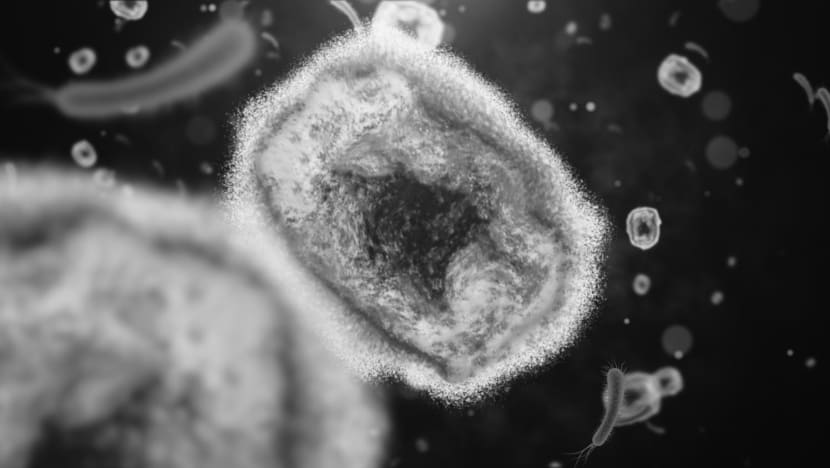WHO declares monkeypox a global health emergency amid rising cases

The first symptoms of monkeypox are fever, headaches, muscle pain and back pain during the course of five days. (Photo: iStock)
GENEVA: The World Health Organization (WHO) on Saturday (Jul 23) declared the monkeypox outbreak, which has affected nearly 17,000 people in 74 countries, to be a global health emergency -- the highest alarm it can sound.
"I have decided that the global monkeypox outbreak represents a public health emergency of international concern," WHO chief Tedros Adhanom Ghebreyesus said at a press conference.
He said a committee of experts who met on Thursday was unable to reach a consensus, so it fell to him to decide whether to trigger the highest alert possible.
Washington welcomed the WHO's declaration as "a call to action for the world community to stop the spread of this virus".
"A coordinated, international response is essential to stop the spread of monkeypox, protect communities at greatest risk of contracting the disease, and combat the current outbreak," said Raj Panjabi, senior director for the White House's global health security and biodefence division.
Tedros noted that when he convened the WHO Emergency Committee last month to assess if the outbreak represented a public health emergency of international concern, there were 3,040 reported cases of monkeypox from 47 countries.
"Since then, the outbreak has continued to grow, and there are now more than 16,000 reported cases from 75 countries and territories, and five deaths," he said.
"We have an outbreak that has spread around the world rapidly, through new modes of transmission, about which we understand too little, and which meets the criteria in the International Health Regulations."
A surge in monkeypox infections has been reported since early May outside the West and Central African countries where the disease has long been endemic.
Tedros said there was a clear risk of further international spread, but noted that the "risk of interference with international traffic remains low for the moment".
WHO assessed that the risk of monkeypox was moderate globally and in all regions, except in the European region where the risk was deemed to be high.
"Although I am declaring a public health emergency of international concern, for the moment this is an outbreak that is concentrated among men who have sex with men, especially those with multiple sexual partners," Tedros said.
"That means that this is an outbreak that can be stopped with the right strategies in the right groups."
On Jun 23, the WHO convened an emergency committee (EC) of experts to decide if monkeypox constituted a Public Health Emergency of International Concern (PHEIC) - the UN health agency's highest alert level.But a majority advised Tedros that the situation, at that point, had not met the threshold.
The second meeting was called on Thursday with case numbers rising further, where Tedros said he was worried.
"I need your advice in assessing the immediate and mid-term public health implications," Tedros told the meeting, which lasted more than six hours.
A US health expert sounded a grim warning late on Friday.
"Since the last #monkeypox EC just weeks ago, we've seen an exponential rise in cases. It's inevitable that cases will dramatically rise in the coming weeks & months. That's why @DrTedros must sound the global alarm," Lawrence Gostin, the director of the WHO Collaborating Center on National and Global Health Law, said on Twitter.
"A failure to act will have grave consequences for global health."
WARNING AGAINST DISCRIMINATION
A viral infection resembling smallpox and first detected in humans in 1970, monkeypox is less dangerous and contagious than smallpox, which was eradicated in 1980.
Ninety-five per cent of cases have been transmitted through sexual activity, according to a study of 528 people in 16 countries published in the New England Journal of Medicine - the largest research to date.
Overall, 98 per cent of infected people were gay or bisexual men, and around a third were known to have visited sex-on-site venues such as sex parties or saunas within the previous month.
"This transmission pattern represents both an opportunity to implement targeted public health interventions, and a challenge because in some countries, the communities affected face life-threatening discrimination," Tedros said earlier, citing concern that stigma and scapegoating could make the outbreak harder to track.
The European Union's drug watchdog on Friday recommended for approval the use of Imvanex, a smallpox vaccine, to treat monkeypox.
Imvanex, developed by Danish drugmaker Bavarian Nordic, has been approved in the EU since 2013 for the prevention of smallpox.
It was also considered a potential vaccine for monkeypox because of the similarity between the monkeypox virus and the smallpox virus.
The first symptoms of monkeypox are fever, headaches, muscle pain and back pain during the course of five days.
Rashes subsequently appear on the face, the palms of hands and the soles of feet, followed by lesions, spots and finally scabs.














